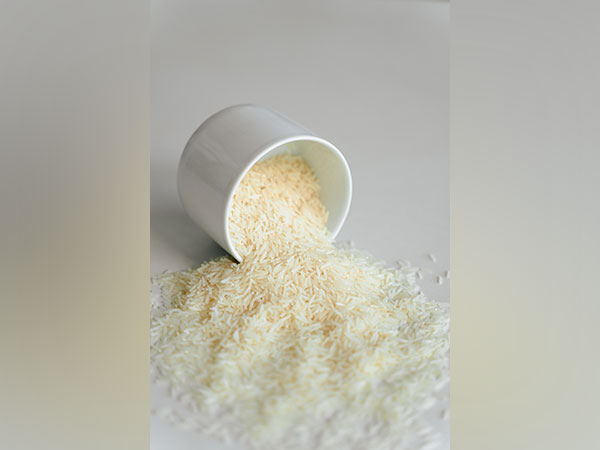India introduces additional safeguards on basmati rice to prevent regular rice exports
India has introduced additional safeguards on exports of basmati rice so as to prevent exports of non-basmati white rice -- which is presently under the prohibited category.

- Country:
- India
India has introduced additional safeguards on exports of basmati rice so as to prevent exports of non-basmati white rice, which is presently under the prohibited category. On Sunday, the government in a statement said it has received credible field reports regarding misclassification and illegal export of non-basmati white rice. "It has been reported that non-basmati white rice is being exported under the HS codes of parboiled rice and basmati rice," the government said in a statement. Notably, the export of non-basmati white rice was prohibited from July 20 to check the domestic prices and ensure domestic food security. The government noticed that despite restrictions put on certain varieties, rice exports have been high during the current year. It has issued instructions to APEDA, which regulates agricultural produce exports, to introduce additional safeguards to prevent the possible illegal exports of white non-basmati rice in the garb of basmati rice. The government suggested contracts for basmati exports with a value of USD 1200 per tonne only and above should be registered for the issue of Registration–cum– Allocation Certificate (RCAC); and contracts with a value of below USD 1200 per tonne may be kept abeyance and may be evaluated by a committee to be set up by the Chairman, APEDA. "It has been noted that there has been a large variation in the contract price of Basmati being exported with the lowest contract price being USD 359 Per tonne in the backdrop of an average export price of USD 1214 per tonne during the current month. The Committee should submit its report within a period of one month, whereafter a decision on lower price exports of Basmati planned by industry can be taken appropriately," it said.
Total exports of rice (other than broken rice, export of which is prohibited) as of August 17 were 7.33 million tonne compared to 6.37 million tonne during the corresponding period of the previous year, registering an increase of 15.06 per cent. The export of parboiled rice and basmati rice, both of which did not have any restrictions on exports, also saw a spurt.
While the export of parboiled rice has grown by 21.18 per cent, export of basmati rice has increased by 9.35 per cent. Against that backdrop, the Centre on Friday imposed a 20 per cent export duty on parboiled rice. Further, the export of non-basmati white rice, which had an export duty of 20 per cent since September 9, 2022 and has is now prohibited, has also registered an increase of 4.36 per cent to 1.97 million tonnes. On the supply side, the production during the rabi 2022-23 season as per third Advanced Estimate of Department of Agriculture and Farmers Welfare was only 158.95 lakh tonne against 184.71 lakh tonee during Rabi Season of 2021-22, a decline of 13.84 per cent. "Internationally, due to strong demand from Asian buyers, production disruptions registered in 2022/23 in some major producing countries like Thailand, and fears of possible adverse effect of the onset of El Nino, international rice prices have also been rising continuously since last year," the government statement said. Notably, the FAO Rice Price Index reached 129.7 points in July 2023, its highest value since September 2011, registering an increase of 19.7 per cent over past year levels. "As the prices of Indian rice are still cheaper than the international prices, there has been a strong demand for Indian rice, resulting in record exports during 2021-22 and 2022-23," the government stated. (ANI)
(This story has not been edited by Devdiscourse staff and is auto-generated from a syndicated feed.)
ALSO READ
Rahul Gandhi Accuses RSS of Interfering with Indian Statistical Institute
Clinical Indian Bowlers Shine in Women's T20I Opener
Suspension of Indian Visa Services in Chittagong Amid Rising Tensions
Global Seas Meet: Indian Navy to Host International Fleet Review 2026
Cyber Slavery: Rescue and Repatriation of Indian Victims










